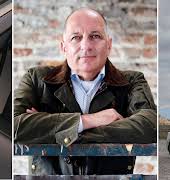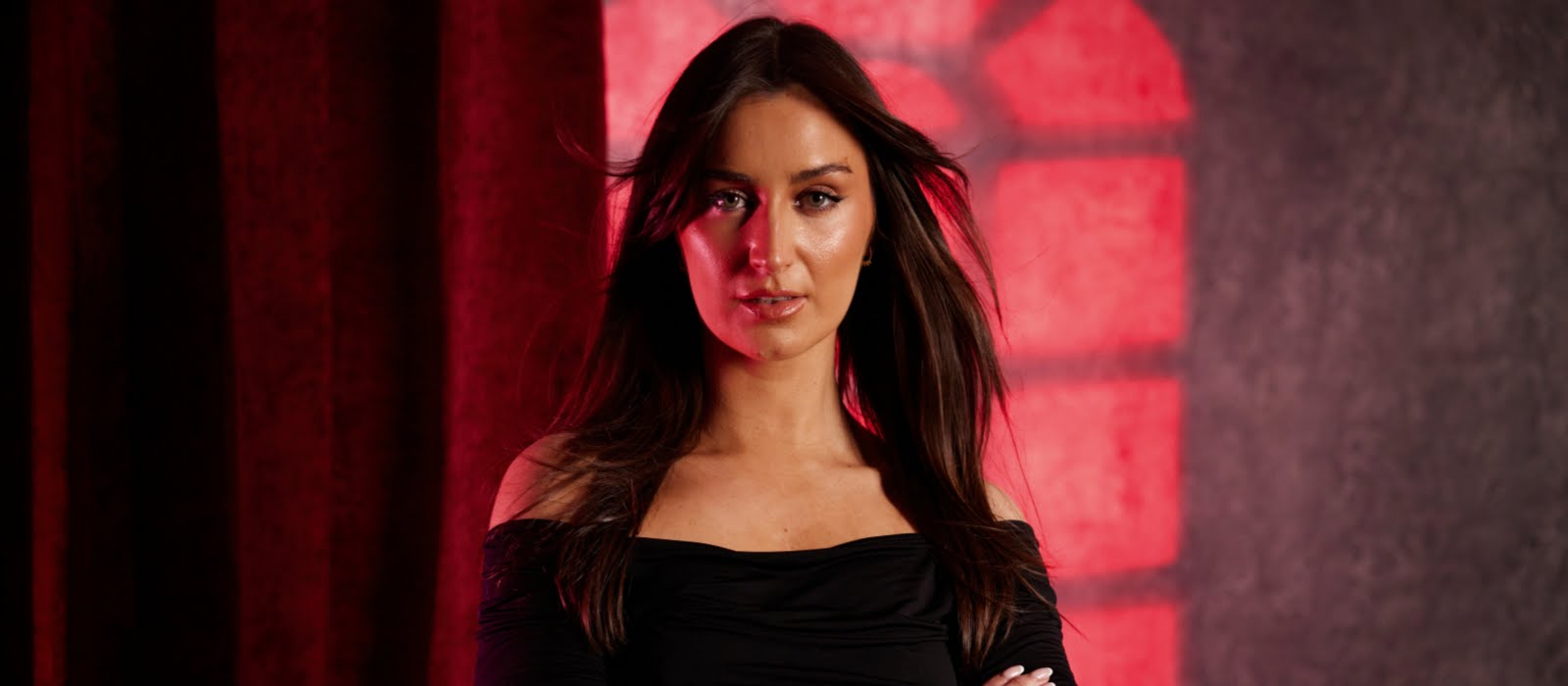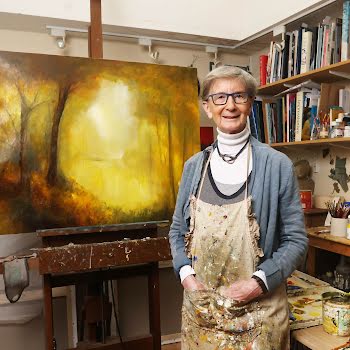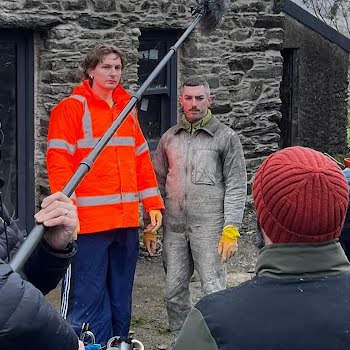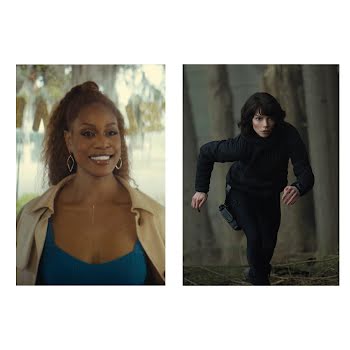A morbid fascination: Jenny Claffey on our preoccupation with true crime content
In recent years, we’ve seen an almost overwhelming surge of interest in true crime content. From dedicated podcasts and discourse forums to hyper-stylised small screen docuseries and highly dramatised feature films, the appetite for morbidity seems to be insatiable. But is it all that ethical? Jenny Claffey, host of the true crime podcast Red Room, has some thoughts on the morality of the genre.
When you open up Netflix, scroll through social media, or browse through your local bookshop, the resounding saturation of the true crime landscape is instantly apparent. Whether it’s a multitude of podcasts examining well-known cases, social media sleuths sharing their theories, or Hollywood heartthrobs being cast as notorious serial killers, there’s something about the frenzied fixation on the darker side of humanity that leaves you feeling a little icky, to say the least.
Earlier this month, Evan Peters picked up a Golden Globe for his portrayal of a man who violently killed and dismembered seventeen men and boys between 1978 and 1991 in Ryan Murphy’s Netflix original, Monster: The Jeffrey Dahmer Story. In his acceptance speech, Peters said that the show was “a difficult one to make, a difficult one to watch,” but expressed his sincere hope that something good could come of it.
Speaking to TMZ in the immediate aftermath of the awards ceremony, Shirley Hughes – mother of Dahmer victim Tony Hughes – said, “There’s a lot of sick people around the world. People winning acting roles from playing killers keeps the obsession going. This makes sick people thrive on fame … It’s a shame that people can take our tragedy and make money. The victims never saw a cent. We go through these emotions every day.”
Coming up to a year after its release, the Netflix show has received a whopping 13 Emmy nominations and reignited a conversation around the ethical implications of dramatising tragedy. Thomas Jacobson, a representative of the families of Dahmer’s victims, says that this acknowledgment from the Television Academy glorifies the serial killer’s murders. In a statement given to The Wrap, he said: “By celebrating and rewarding these portrayals, there is a risk of normalising the actions of individuals like Dahmer, potentially desensitizing audiences to the real-life consequences of violence.”

While the knee-jerk reaction in these situations is to look to the creators, actors, and industries that mine trauma for content and morph tragedy into entertainment, there comes a point where you have to look inward. There is no supply without demand, and viewership figures indicate that the hunger for these stories isn’t going to be satisfied any time soon. But where does it come from, and more importantly, what does it tell us about ourselves, as a society?
“Of course, there are layers to how people engage with this kind of content,” says Jenny Claffey, host of the podcast Red Room. “Some will take it in as a form of entertainment, while others will get more involved. There’s a multitude of people that consume this kind of content, and there’s a spectrum of reasons why they enjoy it. For the broadest stroke contingent, they look at it and they say, ‘thank God it’s not me’.”
On the Red Room podcast — a weekly journey down a niche rabbit hole to places that are weird, wonderful, and thoroughly mind-boggling — Jenny dedicates a monthly episode to true crime content and loves nothing more than peeling back the curtain on the underbelly of the prim and proper.
“I haven’t really pathologised why it is that I’m so interested in the darker side of things. I’ve always been a very curious person, and I think people that are drawn to this realm of content usually are. It comes from a fascination with the human mind, because when you read these stories, you begin to see the psychological reasons why people become this way, and you can’t stop burrowing down that rabbit hole.”
Why is it that women are the main demographic fueling this demand for true crime content? To Jenny, it can be boiled down to two main elements: an instinct towards self-preservation, and the female empathetic brain.

“I often find myself wondering if soaking up all this information is a way for women to feel like they’re one step ahead. If they know everything there is to know about the people that commit these crimes, maybe they’ll feel safer. Women try to understand where and how someone becomes like that. We’re drawn to the human mind, we have this impulse to want to figure people out.”
The majority of people enjoy feeling puritanical, and through engaging with the stories of sadistic serial killers, they position themselves on something of a moral high ground. Whether we realise it or not, many of us look for any semblance of ourselves in the particular set of circumstances or behaviours that lead people to commit these crimes, and in doing so we’re able to distance ourselves from it entirely. But when these cases begin to exist in the abstract, we lose touch with the real-life repercussions. “These stories feel like reading a book, because within them is something that the mind can’t quite comprehend. It’s f*cked up in so many ways, but it piques this morbid fascination.”
Depravity piques our interest, and naturally, Hollywood is going to capitalise on that. Speaking on the backlash received by his Dahmer Netflix series — which has since been renewed for a second season — creator Ryan Murphy said: “What are the rules now? Should we never do a movie about a tyrant?” He told the New York Times that he felt compelled to tell Dahmer’s story because “it was the biggest thing [he’s] ever seen that really sort of examines how easy it is to get away with things with the white privilege aspects.”
But do these dramatised retellings of sordid tales serve any real, tangible benefit? Where do we draw the line between what’s fair game and what verges on sensationalising, scandalising, and downright exploitation?
For Jenny, it’s all in the portrayal of the victim. Where many varieties of this kind of content are criticised for humanising the killer to an alarming degree, many gloss over the victims that were not afforded the opportunity to leave a legacy of their own.
“Though some episodes did it better than others, I found that Dahmer did a great job of humanising the victims, and that’s where the line of true crime content is. It’s such a fine line to tread, and that onus is on the directors and content creators. The responsibility is to truly highlight the victims as people because that is something that is so often lost. It’s easy to only put the basis and weight on the person who did the killing, but you have to remember that there are real people involved who lost their lives in very horrific ways, and people likely still working through that trauma. When I make my own true crime content, I try to talk about the victims, because it’s so important to remind your audience that this isn’t a game.”
“These stories aren’t puzzles, and we’re not playing Cluedo. People love a whodunit, but that’s not what this is. It’s real and involves real people. Getting to know the victims makes it less like trauma porn, and brings it right out of the abstract.”
In the same way that the podcast industry exploded in the last ten years — particularly within the true crime genre — the internet at large is experiencing a similar surge, and it seems that the algorithm favours the sensationalised, as can be evidenced by the Idaho massacre that largely played out on TikTok. For those otherwise unfamiliar with the Idaho murders, the case involved the fatal stabbing of four University of Idaho students in November. Where TikTok users set out to solve the case before the police, things descended into a form of witch hunt when one creator accused a college professor of orchestrating the killings. The creator is now being sued for defamation.
“It’s such a weird feeling seeing these horrific stories playing out in real-time and knowing in your heart that there’s a producer somewhere that cannot wait to make a show about it,” Jenny says. “The internet is a murky pool of speculation. People point fingers and treat it like Live Action Role Play, and that’s something I really struggle with. I do believe that the internet will begin to play a much larger role in this facet of crowd-sourced detective work.”
It’s no secret that the internet has desensitised us to a plethora of disturbing things, and we’ve read, seen and listened ad nauseam to upsetting details far outside our understanding. However, as we become more and more sanitised as a society, we find our minds becoming increasingly preoccupied with the darker facets of the human condition.
“There’ll always be an interest in morbidity. Think back centuries to freak shows, when these people were portrayed as the underbelly of society, and we queued up and paid for tickets. Humans are naturally drawn to things that we don’t understand, and we want to figure things out for ourselves. It’s just hard-wired in our brains.”
Over the past number of months, Jenny Claffey has been bringing her Red Room offering to the realm of Youtube, launching some of the podcast’s most popular topics in bite-size form. From surreal stories of past lives and supposed ‘proof’ of reincarnation to a deep dive into The Vanishing Triangle of Ireland’s missing women, Jenny makes it all accessible and understandable, without losing the haunting aura that makes us unable to turn away.
Photography by Evan Doherty.


